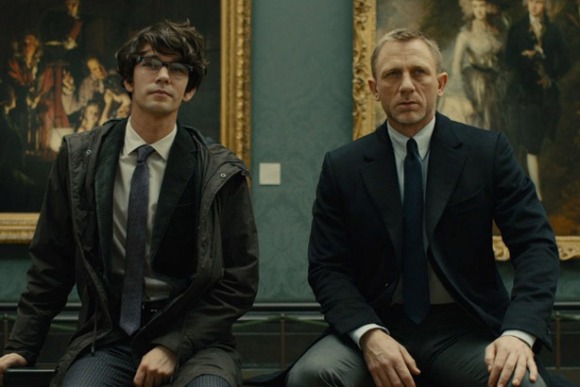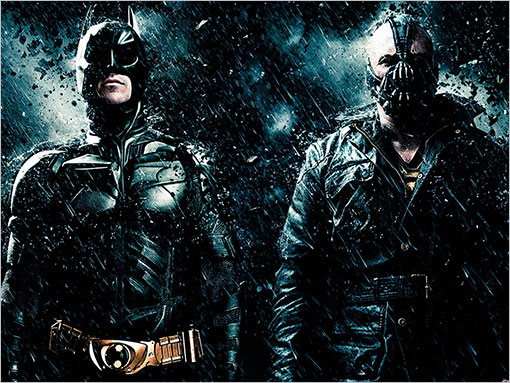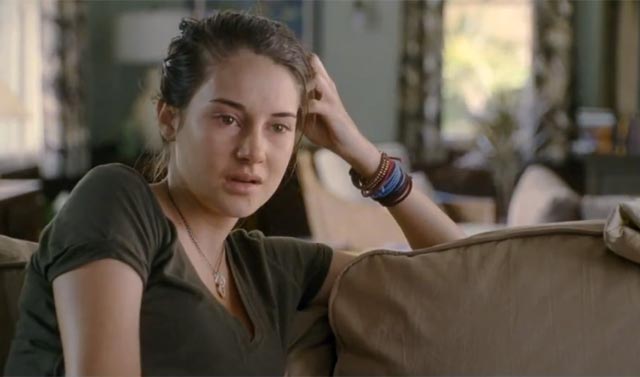By Ken Whitney III
When do we become obsolete? At what point do you feel that who you are has not (or never has) been in your control?
We welcome back the best secret agent in the business, celebrating 50 years of saving the world in style, with SKYFALL – and BOY is it a doozy of a birthday celebration.
James Bond (played consistently and better with every film by Daniel Craig) is on the hunt for a hard drive containing a list of all undercover operatives in terrorist cells around the world. Things begin to spiral out of control and M (returning Dame Judi Dench) has Bond’s field partner (Naomi Harris) take a shot that ends up hitting Bond and sends him to a watery grave… or so it seems (like you needed me to tell you that).
Months later a cyber-terrorist begins to bring the list out into the open, endangering the lives of countless agents; all the while Taunting M by pushing and prodding her with clues and messages that do nothing but shame MI6 and call into question the efficiency of British Intelligence. 007 is pulled back into the crosshairs of a mission he honestly may not be ready to take on, against a villain with nothing to lose and an uncanny ability to stay ahead of them all.
THE PROS: 23 Movies. Seriously? Let’s give the Bond franchise a nice round of applause *clapping*! The longest running franchise in film history has created one of the most thrilling, relevant, and rejuvenating chapters in it’s canon and it does so not only by looking forward to the future, but respecting the source of it’s origins. Sam Mendes enters the directing chair for the first time with Bond (his second though, with Craig *cough* Road To Perdition *cough*) and he owns it. Not just driving the sense of action and suspense needed to be on par with the best of 007’s films, Mendes brings the locations and scenery to life in the most breathtaking ways. From the bustling markets of Turkey to the cascading, desolate hills of Scotland, the camera finds its mark perfectly and gives us cinematic ‘eye candy’ we can’t get enough of.
Daniel Craig started out as a risk for the studios to replace Pierce Brosnan, but after Casino Royale audiences were convinced he held the Walther PPK rather nicely. Now on his third film, it is safe to say that Craig has made it into the arguable class of ‘best Bond behind Connery’. Craig encompasses every part of Bond we love most and rides it all the way home. From cold-hearted killing to delicate seduction, from simple one-liners and witty banter to a sense of genuine vulnerability, 007 hasn’t felt this fresh since Goldfinger. The script is strong and current, reflecting on the concept we’ve all been feeling since Tomorrow Never Dies: Is Bond outdated? Should we finally ‘put him out to pasture’? As M once put it; 007 is a ‘relic of The Cold War’, secret missions and shadowy ‘hits’ have become a thing of the past. We live in a world where being honest and frank about the world and it’s dangers is not only common, it’s expected by the people that are being protected. Even when it’s things we’d rather not know.
The supporting cast is top-notch as well. Judi Dench returns as M and the ‘mother’ figure-type role is expanded even further between herself and Bond. Ralph Fiennes adds his wonderful talent as Gareth Mallory, another high-ranking member of British Intelligence working to fix what’s gone wrong under M’s watch. A great treat we’ve all been wanting to come back has finally arrived: Q Branch is in. Played wonderfully tepid and to-the-point by Ben Whishaw, Q is Bond’s overdue access to his gadgets and a welcome, younger perspective in the discussion of how hard the ‘young man’s game’ of espionage and covert operations really is. And our Bond Girl is a treat of exotic mystery and distress. Severine (pronounced ‘Sev-er-eene’ and played very well by Berenice Marlohe) is the tempting and tainted link to Bond’s greatest enemy yet.
The real treat of Skyfall definitely comes to rest in the hands of none other than Javier Bardem. The Oscar-winning actor continues to add strange, twisted, new roles to his resume and this one is no different (and perhaps, one of his best). Bardem is Raoul Silva; the cyberterrorist that threatens not only the lives of countless agents but their leader as well. He is everything we love about Bond Villains. Wonderfully warped; he is a pleasure and horror to watch work, Silva encompasses revenge in all it’s morbid beauty. He chuckles and heartily laughs at the ineptitude of British Intelligence and Bond’s ‘misguided’ devotion to M. When all signs no longer look in his favor, that is when he is the most cunning and terrifying (that’s really all I can say without giving away the assured awesomeness of it all).
CONS: The only real drag to the film is an odd sense of pacing that occurs in the middle half. Though still pushing forward, there is a sense of uneven storytelling that exposits without necessarily giving us reason to want and rest in the moment. The speed in which we begin almost moves us into gear too soon; causing Skyfall to stall slightly and slowly accelerate to a thrilling and lasting pace.
THE BOTTOM LINE: Bond has never felt more alive! Doing what he does best with all that we know and love about him, Bond is stirred even more with Craig adding his own sense of style to the mix. Skyfall is an exercise in refreshing storytelling of a classic medium. The old with the new and all the unexpected in between. 007 revels in the mystery of his inner self and untold past. The mystery is what helps us claim him as our favorite in our own, personal way. After 5 decades, you begin to wonder if the romance is still there. Can we learn to love this secret agent with a heart of ice again? Skyfall shows us that we can.
GRADE: A




























